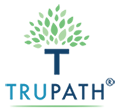Heroin Withdrawal Symptoms
Heroin is a potent opioid drug that, when smoked, snorted, or injected, binds to the opioid receptors in the brain and makes chemical changes that produce feelings of euphoria but also change the way the brain controls the heart rate, and pain, pleasure, breathing and sleeping. The brain becomes dependent on having the heroin in the body and begins to be unable to function normally without it (dependence), leading to compulsive heroin use and addiction.
Withdrawal symptoms occur when a person with an addiction tries to stop using heroin or cut back. They can be very uncomfortable, distressing, and painful. Common heroin symptoms of withdrawal during opiate detox include:
- Insomnia
- Agitation and anxiety
- Irritability
- Low energy
- Runny nose and teary eyes
- Cold sweats, chills, and goosebumps
- Chronic yawning
- Muscle aches
- Nausea and vomiting
- Abdominal cramping
- Restless leg syndrome
- Depression
- General flu-like symptoms
A medically supervised detox will provide medications and treatments to reduce or eliminate these emotional, psychological, and physical symptoms.
When do Symptoms of Withdrawal Start?
When you stop using heroin, you can expect acute withdrawal symptoms to begin to show up between 6 and 12 hours after your last use. It begins by feeling like a bad flu. Every person is different, and the withdrawal timeline will depend on factors like:
- Your level of drug addiction
- How much heroin you have been using
- How long you have been using it
- How often you use heroin
- Whether you were using other drugs or alcohol along with the heroin
- Your mental and physical health at the time of detox
- Whether you have a mental health issue or trauma to work through at the same time
Some medications that are used to help ease withdrawals during detox for opioids include benzodiazepines, antipsychotics, pain relief, nausea medications, diarrhea medications, sedatives, anti-anxiety medications, diuretics, and replacement medications like methadone and Subutex or suboxone.
Once detox is complete, you will be more physically stable and will have a clearer head, so you will be better able to focus on the rest of your substance abuse treatment.
How Long Does Heroin Withdrawal Last?
The heroin withdrawal timeline for detox has two distinct phases. The first is called acute heroin withdrawal. This begins within 6 to 12 hours after your last heroin use, feeling like the flu at first. Symptoms will peak within a few days, lasting for about a week in total, after which time you will begin to feel a bit better each day.
The second phase is called post-acute heroin withdrawal. Once you have completed a detox program, you may experience post-acute withdrawal symptoms like body aches, nausea, and severe drug cravings that may unexpectedly return weeks or even months after detox. For this reason, a longer rehabilitation period of inpatient and outpatient rehab is recommended. The more you learn about relapse prevention techniques and recovery skills, and the more connected you are to a sober community, the better chance of long-term recovery from heroin you will have.
Recovering From Heroin Addiction with TruPath
TruPath drug and alcohol detox and addiction recovery is a network of addiction treatment centers in Los Angeles and New Jersey that provide medical care, targeted therapy, and a variety of recovery programs to people with substance use disorders. We use our passion and integrity to empower our clients in their own personal growth.
Our rehab centers treat drug and alcohol addiction, as well as dual diagnosis conditions in which a patient is dealing with addiction and a mental illness like bipolar disorder, anxiety disorder, depression, or post-traumatic stress disorder. We also treat drug and alcohol withdrawal through medical detox in our recovery centers.
Some of the addiction therapies offered include cognitive behavioral therapy, biofeedback, dialectical behavioral therapy, anger management, psychodynamic therapy, group therapy, experiential therapy, and motivational enhancement therapy. We also offer holistic therapies like meditation, yoga, and art therapy.
Through medical detox, inpatient rehab, outpatient rehab, intensive outpatient programs, day programs, and continuing care like Narcotics Anonymous and Alcoholics Anonymous, you will heal your mind and body and gain new coping strategies and life skills. At TruPath, you will work to uncover the underlying causes of your addiction, gain recovery tools and relapse prevention skills that will last you a lifetime, and become the sober person you want to be in life.





